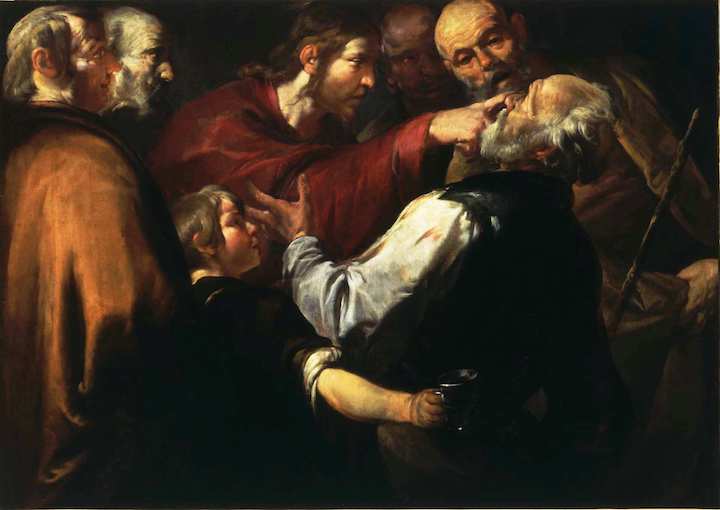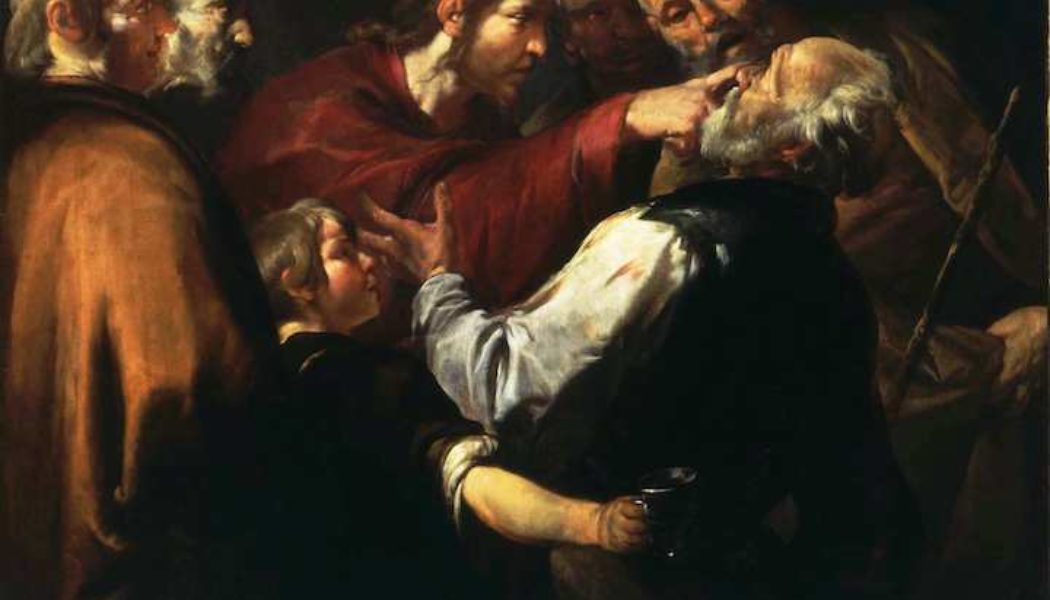John M. Grondelski
Among Cardinal Robert McElroy’s seemingly multiple objections to Catholic teaching is its sexual morality. For McElroy, besides being unwelcoming and off-putting, Catholic sexual ethics distorts Christian moral life as well as makes assumptions that he rejects, by misusing in this context the old category parvitas materiae (“lack of serious matter”).
In plain English, he rejects the notion that sins against the Sixth Commandment by their nature are mortal sins.
In plain English, Cardinal Robert McElroy is wrong.
It’s hard to know where to start with this somewhat complex point of moral theology, given that all the background and merits of the issue cannot fit in the brief space of a column. But one could start with the structure of a moral act. Moral acts have moral value independently of their agent’s intentions. That’s what we mean when we say an act is “intrinsically evil” or even “intrinsically disordered.” It means there is a real moral order prior to action.
One could claim that sexual sins – in comparison to the foundational sin of pride, for example – are not among the “most serious.” But, as the Catholic philosopher Edward Feser has aptly noted, not being among the most serious sins doesn’t make them not serious. And why this allergy to using the quite useful term “mortal sin?”
McElroy distorts history because, while the term parvitas materiae may be of 17th-century vintage, the concept has historically deeper roots. When Scholastics such as Thomas Aquinas spoke of sexual sins or when the notion of “sins crying to heaven for vengeance” (which traditionally included sodomy) was taking shape even in the Patristic Age, nobody suggested those authors thought the sins they rejected were venial.
All those theologians and churchmen insisted sexual sins were serious because they violated the very ends of human sexuality: procreation and mutual support. Put bluntly, because sin involves primordial values like life and a particular form of interpersonal relations, the violation of those values has to be serious.
As Karol Wojtyła put it sixty years ago, in Love and Responsibility, a human person is to be the object of love in all that person is (including his potential parenthood). One can either love that person or use him/her: there is no middle ground or sliding scale on use.
It’s hard exactly to pinpoint Robert McElroy’s complaint. Is it with the whole idea of a preexistent moral order, a real Christian anthropology, and an understanding of conscience that recognizes conscience does not create but mirrors that objective moral order?
Or is it (also) with specific issues?
Most people today blithely separate sex from marriage, as everything from “hookups” to pretended “pre-nuptial commitments” attest. But in all these cases, physical intercourse speaks a language of unity, permanence, and commitment that may be denied by current mores, but reveals a fundamental dishonesty. Is that not always serious?
And when that commitment is needed, as when an “unplanned” pregnancy occurs, doesn’t this attitude towards sex fuel what Vatican II calls a “crime against God and man” – abortion? And doesn’t it also reinforce a double standard, a denial of the sexual asymmetry between women and men, leading to claims women “need” abortion to be “equal to men?”
The separation of sex from marriage doesn’t only involve fornication. Masturbation – an exceedingly difficult habit to break and one reinforced today by widespread online pornography – already ingrains an understanding of sex as primarily a question of erotic pleasure rather than sex as a form of responsibility – the intimacy between spouses and the begetting of children.
Further, the separation of parenthood from marriage subordinated the real good of children to “parental projects,” so that the fundamental truth that a child has a right to a biological relationship with a mother and a father is increasingly seen as quaint, if not outright discriminatory. Hasn’t it led to couples deciding they are the “lords and givers of life” in terms of what they do with their intercourse, with practically no awareness of their subordinate co-Creatorship with God?
And the separation of procreation from mutual support has undermined understanding of the Divine design of sexual complementarity, leading to efforts of rewrite Scripture and Tradition to accommodate mores clearly alien to them.
Let me try to anticipate what could be McElroy’s objection. Fifty years ago, many confessors often heard penitents confess “impure thoughts” and had to instruct people on the difference between temptations and willfully entertained thoughts. We’re told people today are no longer “repressed.” But how often do those willfully entertained thoughts lead first to an intellectual rationalization for, and then an actual commission of, such acts? Even Christ teaches that what makes someone impure begins in “the heart,” i.e., in our thoughts. (Mt 15:18-19; see also 5:28)
Sexual sins, in and of themselves, are inherently mortal sins. Subjective factors – habit, emotions, compulsion, fear, force, addiction – can affect a person’s subjective culpability, which is to say diminish responsibility for an otherwise serious act. But that’s not the same thing as saying that the act in itself might not be serious or even “pre-moral.” That kind of revisionist morality is rejected in the whole of the Church’s tradition and restated in John Paul II’s Veritatis splendor.
That this is received Catholic teaching really was not disputed until the 1960s. It was an unprecedented revisionist moral theology that suddenly found no serious sin in the sexual realm. But that was never a position the Church affirmed, even if large swaths of priests and bishops practiced a studied omertà after the sexual revolution of the 1960s when it came to teaching people about sexual morality.
If McElroy wants a different sexual ethic, one that does not engender guilt because of “objectively grave sins outside of marriage,” he’s welcome to advocate for it. But he should at least admit what he wants is not Catholic.

Leila Marie Lawler
Using rhetoric borrowed from some third-rate, uninspired Marxist handbook to expound on Synodality, Cardinal McElroy has proposed a perverted future for the Catholic Church. He makes one assertion, however, that is correct, albeit subversively sprinkled amongst dubious clauses. He writes of “reverence for conscience in Catholic faith” and says that “it is conscience that has the privileged place.”
His words (and those of his allies, on a mission to upend the faith) are a trap, luring us to react by rejecting the “primacy” of conscience. But as the Catechism of the Catholic Church puts it: “Deep within his conscience man discovers a law which he has not laid upon himself but which he must obey. Its voice, ever calling him to love and to do what is good and to avoid evil, sounds in his heart at the right moment.”
Ever since Humanae Vitae, unfortunately, the mention of conscience has rattled the teeth of faithful Catholics. That encyclical marked the beginning of current public dissent, from prelates and even whole bishops’ conferences, who abandon conscience as the voice within, informing about a law conscience does not create, then warning us about the path to follow. They forget that, in its avenging mode, conscience wreaks havoc on the person and finally on the community.
As J. Budziszewski says:
Avenging conscience explains the remark of G. K. Chesterton’s Father Brown in “The Flying Stars”: “Men may keep a sort of level of good, but no man has ever been able to keep on one level of evil. That road goes down and down.” Pursued by the Five Furies, the man becomes both more wicked and more stupid: more wicked because his behavior is worse, more stupid because he tells himself more lies.
Given that we lost the Humanae Vitae fight on the field – that virtually all Catholics today practice contraception (and abort at the same rate as the general population) – the authentically Catholic approach needs to be reassessed. Appeals to the authority of documents and even to rational arguments lack the strength of straightforward teaching; obedience to a magisterium in flux can be turned against the faith when authority becomes corrupt, as recent years and events ought to have taught us.
Catholics have developed an unsatisfying response to the claim that sinners are simply taking a noble stand on the basis of some twisted principle; we ourselves have unwittingly enabled this claim by denying conscience’s real power.
Conscience can’t be outsourced; it is interior to man. “His conscience is man’s most secret core and his sanctuary. There he is alone with God whose voice echoes in his depths,” the Catechism rightly states. St. Augustine teaches, uncomfortably for some, that it is the voice of God within. We leave the high ground to dissenters by making that divine voice into something like “things you learn about decision-making from books written by theologians and apologists.”
Even the phrase “the well-formed conscience” – though true enough in the abstract – is notable for its mistrust of the immediate power of objective truth and Christ’s call to repentance to move the soul. We have become detached from our own experience of knowing in a flash that we have done rightly or wrongly.
Only by challenging the McElroy faction with the plain and simple truth of conscience can we escape the trap set by the Church’s enemies. The Catechism of the Council of Trent speaks simply of clean or guilty consciences. Scripture insists on a clear conscience and deplores a defiled one.
Cardinal Caffarra, one of the authors of the still unanswered Dubia presented to the pope after Amoris Laetitia – and no friend of the McElroy faction – urged the restoration of man by reclaiming the centrality of conscience in the poignant work now known as his Final Testimony, written just before his death: “Moral conscience. . .is the place where God addresses his first, original, permanent word to man: the place where God is revealed as man’s guide. If you turn off this light, man will blunder around in the dark.”
He added, “The most unmistakable pathological symptom. . .is the counterfeiting which the concept and experience of moral conscience has undergone. . . .We have to start from our daily experience. It attests to the fact that the judgement of conscience possesses a completely singular force: that of compelling our decisions, our freedom, in an absolute and not just a hypothetical way.”
Prayers in the liturgy exhort us without ceasing to ponder and study God’s Law and to follow His precepts. Teaching God’s Commandments is the normal way to inform and awaken conscience. Do our clergy in general and the episcopacy in particular know these Commandments by heart and obey Scripture’s exhortations? They mention them only rarely.
Conscience, embedded in man’s soul, exists. It has rights and duties. As J. Budziszewski puts it, there are things we cannot not know. Hearing sound moral precepts clarifies the voice within, calling the person to repentance. We must trust in this; our faith is based on its possibility.
The suffering souls McElroy claims to represent are desperate for relief from their accusing and avenging consciences. They exist in a state of objective moral disaster, but his emptying of conscience robs them of the essence of personhood – a grave crime.
Conscience is indeed primary, and we are uneasy if our consciences accuse us, as McElroy’s accuses him, of depriving misguided wrongdoers of the way out of sin: repentance that leads to redemption in Christ, who is the Good. McElroy seeks to impose, in the name of conscience, a regime that withholds the very thing that conscience craves.
*Image: Christ Healing the Blind Man by Gioachino Assereto, c. 1640 [Carnegie Museum of Art, Pittsburgh, PA]
You may also enjoy:
Howard Kainz’ The End(s) of Marriage Since Vatican II
Anthony Esolen’s Imagine . . . What We Already Are
The Catholic Thing is a forum for intelligent Catholic commentary. Opinions expressed by writers are solely their own.








